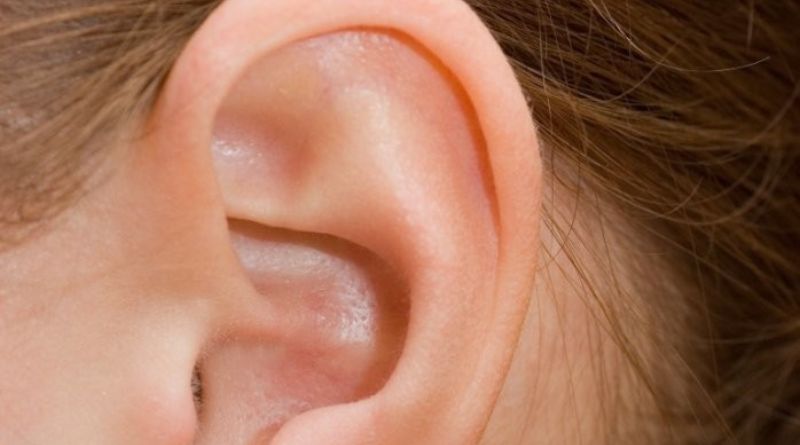
Hearing is one of our most vital senses, connecting us to the world through conversations, music, nature, and more. But for millions of people, hearing loss gradually chips away at these experiences, often unnoticed until it starts to significantly impact daily life. While it’s a common issue, hearing loss is not something you need to live with. Understanding its symptoms, causes, and treatment options can help you protect and enhance your hearing health.
At UT ENT Clinic, we specialize in diagnosing and treating all types of hearing loss, helping patients regain clarity and confidence in their everyday lives.
How Hearing Loss Affects Daily Life
Hearing loss can influence every corner of life, from communication challenges to emotional well-being. Those with hearing loss may notice difficulty understanding speech in noisy environments, asking others to repeat themselves, or turning up the volume on devices more frequently than others would find comfortable. Left untreated, this can lead to isolation, frustration, and even memory or cognitive decline over time.
Types of Hearing Loss
Not all hearing loss is the same, and understanding the type you’re experiencing can provide essential insight into the severity and best approach to treatment.
1. Conductive Hearing Loss
Conductive hearing loss occurs when sound waves are blocked from reaching the inner ear. This can result from issues such as:
- Earwax buildup
- Ear infections
- Fluid in the ear
- Otosclerosis (abnormal bone growth in the middle ear)
This type of hearing loss can often be temporary and treated successfully with medical intervention, including removal of blockages or minor surgery.
2. Sensorineural Hearing Loss
Sensorineural hearing loss happens when there’s damage to the inner ear (cochlea) or the auditory nerve. Causes can include:
- Aging (presbycusis)
- Prolonged exposure to loud noise
- Head trauma
- Certain medications
- Genetic predispositions
This is the most common type of permanent hearing loss, typically addressed through hearing aids or cochlear implants.
3. Mixed Hearing Loss
Mixed hearing loss combines elements of both conductive and sensorineural hearing loss. For example, it’s possible to have both age-related hearing deterioration as well as an ear infection or wax buildup. Treatment often focuses on resolving the conductive component first before addressing the sensorineural challenges.
Common Causes of Hearing Loss
While aging is a leading factor, hearing loss can stem from a wide variety of causes. Recognizing them can help minimize your risk and preserve your hearing health.
Age-Related Hearing Loss
Age-related hearing loss, also known as presbycusis, affects nearly one-third of people aged 65 to 74 and half of those over the age of 75. It’s typically characterized by a gradual decline in the ability to hear high-pitched sounds, like children’s voices or birds singing, which makes speech harder to understand over time.
Noise-Induced Hearing Loss
Chronic exposure to loud sounds at work or leisure (like concerts, headphones, or industrial machinery) can permanently damage the tiny hair cells in the cochlea.
- Tip: Always wear protective hearing devices such as earplugs when exposed to loud environments and keep headphone volumes at a safe level.
Earwax Blockage
Though seemingly minor, earwax buildup can easily cause conductive hearing loss. Proper hygiene and professional cleaning can keep this issue simple and prevent further damage.
Ototoxic Medications
Certain medications, including some antibiotics, chemotherapy drugs, and diuretics, can damage the auditory nerve or inner ear structures, leading to hearing loss.
Health Conditions
Conditions like diabetes, high blood pressure, and cardiovascular disease can impact blood flow to the inner ear structures, contributing to long-term hearing issues.
Recognizing Symptoms of Hearing Loss
Do you often miss parts of conversations or feel like you’re listening through a muffled filter? These signs may indicate the onset of hearing loss:
- Difficulty understanding speech, especially in noisy environments
- Muffling of sounds or voices
- Frequently asking people to repeat themselves
- Increasing the volume of TVs or radios beyond usual comfort levels
- Trouble distinguishing consonants (e.g., “f,” “s,” or “t”)
If you or a loved one experience any of these signs, it’s important to seek a professional evaluation from an audiology clinic like UT ENT to determine the extent of hearing loss.
Treatment Options at UT ENT Clinic
The good news is that hearing loss is treatable, and advancements in medical technology allow us to offer highly effective solutions tailored to each patient’s needs. Here’s how UT ENT Clinic can help:
1. Hearing Aids
For sensorineural hearing loss, hearing aids are often the first choice. These devices amplify sound and improve clarity in conversations. Modern hearing aids come with advanced features such as Bluetooth connectivity, noise reduction, and discreet designs that prioritize both performance and comfort.
2. Cochlear Implants
For severe to profound hearing loss, cochlear implants can bypass damaged parts of the inner ear and directly stimulate the auditory nerve. These devices are life-changing for individuals who do not benefit from traditional hearing aids.
3. Earwax Removal and Medical Treatments
Conductive hearing loss caused by blockages or infections can often be resolved through simple medical treatments, such as:
- Professional earwax removal
- Antibiotics for infections
- Surgery for structural issues like otosclerosis
4. Preventive Care and Counseling
Our team at UT ENT also emphasizes hearing preservation and long-term care. Through education on protective measures, regular hearing evaluations, and personalized counseling, we help patients maintain optimal hearing health for years to come.
5. Tinnitus Management
For those dealing with tinnitus (ringing in the ears), we offer sound therapy, habit-retraining programs, and lifestyle adjustments to manage and reduce symptoms effectively.
Prioritize Your Hearing Health Today
Hearing loss doesn’t have to hold you back. Whether you’ve started noticing early symptoms or have been managing hearing difficulties for years, seeking professional guidance is the first step towards restoring clarity in your life. At UT ENT Clinic, we pride ourselves on combining advanced technology with compassionate care to deliver the best outcomes for our patients.
Schedule your appointment today and take control of your hearing health. A better quality of life begins with a simple step toward sound recovery.





